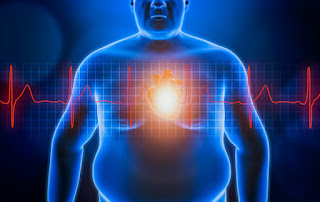Obesity and Heart Health: The Importance of Maintaining a Healthy Weight - Aditi Jagtap Pune

Obesity has become a universal sickness in the ultramodern ages, impacting the populace worldwide. According to World Obesity Atlas published by UNICEF India alone will have more than 27 Million obese children by 2030 and 70% of urban youth is already obese. Approximately thirty-five adults are considered obese, with continuously rising rates. This is a significant concern because obesity is a major risk factor for numerous health problems, including heart disease. Heart disease is one of the leading causes of death in urban India, responsible for one in every four deaths, says Dr Ranjit Jagtap Daughter . Obesity is a major contributor to this statistic, as it increases the risk of developing heart disease by a significant margin. In fact, obesity can lead to a number of other heart-related problems, such as high blood pressure, high cholesterol, and type 2 diabetes. The link between obesity and heart disease is not a new one, and researchers have been studying the connection fo...


